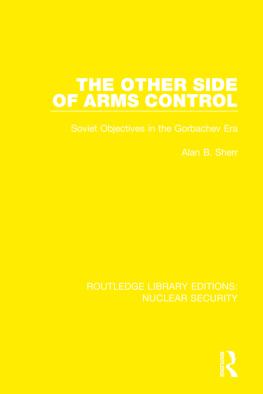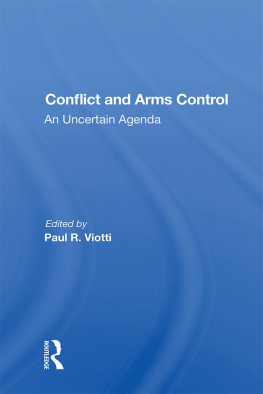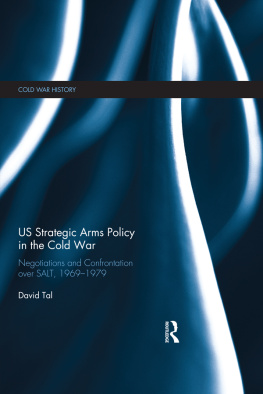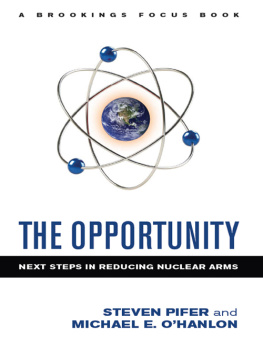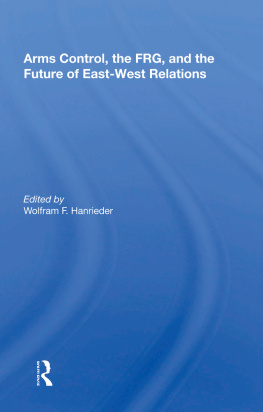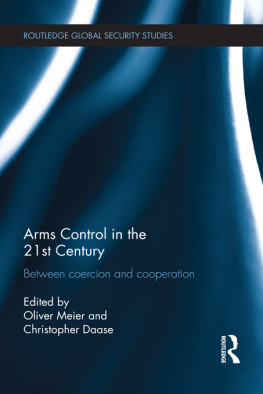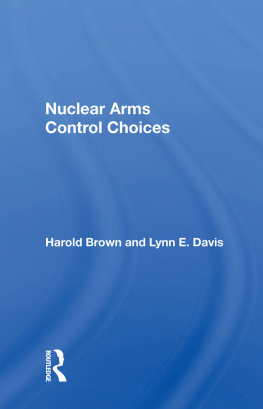
Reconceptualising Arms Control
The theory and practice of arms control seemed to have its heyday during the height of the Cold War, with its focus on the East-West conflict and nuclear arms. In the past twenty years, both arms technologies and various practices aimed at their control have continued to develop, but scholarly thinking has not kept up. This volume seeks to redress this scholarly neglect of the range of issues associated with the control of the means of violence, by asking the question: what does arms control mean in the 21st Century?
In asking this question, the volume examines issues surrounding sovereignty, geopolitics, nuclear disarmament, securitization of space, technological developments, human rights, the clearance of landmines, the regulation of small arms and the control of the black market for arms and nuclear secrets. The book discusses terrorism with reference to the case of the suicide attacks in Beirut in 1983 and how the Obama administration is orientating its posture on nuclear arms.
This book was published as a special issue of Contemporary Security Policy.
Neil Cooper is Senior Lecturer in International Relations and Security Studies in the Division of Peace Studies, at the University of Bradford.
David Mutimer is Director of the Centre for International and Security Studies and Associate Professor of Political Science at York University.
Reconceptualising Arms Control
Controlling the Means of Violence
Edited by
Neil Cooper and David Mutimer
First published 2012
by Routledge
2 Park Square, Milton Park, Abingdon, Oxon, OX14 4RN
Simultaneously published in the USA and Canada
by Routledge
711 Third Avenue, New York, NY 10017
Routledge is an imprint of the Taylor & Francis Group, an informa business
2012 Taylor & Francis
This book is a reproduction of Contemporary Security Policy, vol. 32, issue 1. The Publisher requests to those authors who may be citing this book to state, also, the bibliographical details of the special issue on which the book was based.
All rights reserved. No part of this book may be reprinted or reproduced or utilised in any form or by any electronic, mechanical, or other means, now known or hereafter invented, including photocopying and recording, or in any information storage or retrieval system, without permission in writing from the publishers.
Trademark notice: Product or corporate names may be trademarks or registered trademarks, and are used only for identification and explanation without intent to infringe.
British Library Cataloguing in Publication Data
A catalogue record for this book is available from the British Library
ISBN13: 978-0-415-68883-3
Typeset in Times New Roman
by Taylor & Francis Books
Disclaimer
The publisher would like to make readers aware that the chapters in this book are referred to as articles as they had been in the special issue. The publisher accepts responsibility for any inconsistencies that may have arisen in the course of preparing this volume for print.
Contents
Neil Cooper and David Mutimer
Keith Krause
Simon Dalby
David Mutimer
Columba Peoples
Jim Whitman
Michael Dartnell
Neil Cooper
J. Marshall Beier
Ritu Mathur
Anna Stavrianakis
Mike Bourne
Joanna Spear
J. Marshall Beier is Associate Professor of Political Science at McMaster University. His research interests are rooted in critical approaches to security studies and international relations theory. He is the author of International Relations in Uncommon Places: Indigeneity, Cosmology, and the Limits of International Theory (Palgrave, 2005). His articles have appeared in Contemporary Security Policy, Global Governance, International Politics, International Studies Review, Security Dialogue, and Third World Quarterly.
Mike Bourne is Lecturer in International Security Studies in the School of Politics, International Studies and Philosophy at Queens University Belfast. His main research interests relate to illicit trafficking in arms, technologies, narcotics and conflict commodities; and to critical theories of security. He has published widely on these topics in both academic and policy publications.
Neil Cooper is Senior Lecturer in International Relations and Security Studies in the Peace Studies Division, School of Social Science and International Studies, University of Bradford. He is co-author, with Michael Pugh and Jonathan Goodhand of War Economies in a Regional Context: Challenges of Transformation (Lynne Rienner, 2004) and co-editor with Michael Pugh and Mandy Turner of Whose Peace? Critical Perspectives on the Political Economy of Peacebuilding (Palgrave Macmillan, 2008). He is currently conducting research funded by the British Academy and the Trust for Research and Education on the Arms Trade on the history of conventional arms trade regulation.
Simon Dalby was educated at Trinity College Dublin, the University of Victoria and holds a PhD. from Simon Fraser University. He was appointed to the Faculty of Carleton University in Ottawa in 1993 where he is now Professor of Geography, Environmental Studies, and Political Economy. His research work concerns critical geopolitics, environmental security and political ecology and how these matters link up with discussions of empire, the war on terror, and contemporary modes of metropolitan insecurity. He is co-editor of Rethinking Geopolitics (Routledge, 1998), The Geopolitics Reader (Routledge, 1998, 2006), the journal Geopolitics, and author of Creating the Second Cold War (Pinter and Guilford, 1990), Environmental Security (University of Minnesota Press, 2002) and Security and Environmental Change (Polity, 2009).
Michael Dartnell teaches for the Deptartment of Political Science at Laurentian University Barrie. He is the author of Action directe: Ultra-left Terrorism in France 19791987 (Routledge, 1995) and Insurgency Online: Web Activism and Global Conflict (University of Toronto, 2006) His current research focuses on terrorism and the body, memory, trauma and conflict, and the visual culture of international relations.
Keith Krause is Professor at the Graduate Institute of International and Development Studies in Geneva, Switzerland; and Director of its Centre on Conflict, Development and Peacebuilding. He is also the founder and Programme Director of the Small Arms Survey, an internationally-recognized research NGO that is the main source of information and analysis for international public policy on small arms issues.
Ritu Mathur received her PhD from the Department of Political Science and is a Researcher of the York Centre for International and Security Studies at York University, Toronto. Her PhD dissertation is on The International Committee of the Red Cross and Humanitarian Practices of Arms Control and Disarmament and her MPhil thesis was The Politics of Theatre Missile Defence in East Asia. She has researched in India, Canada and Switzerland. Her research interests include international relations theory, international political theory, critical security studies, arms control and disarmament, War and Peace Movements, International Humanitarian law and ethics, post-colonialism, and foreign policies. She has published in the journals


